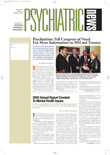Children with ADHD often balk at getting ready for bed. After lights out, they are more apt to call parents or get out of bed than children without the disorder, and they take longer to fall asleep. If they awaken in the night, they often need parental assistance to use the bathroom or get a drink, while other children the same age generally manage such tasks on their own. They may require more effort to get going in the morning.
Comorbid oppositional defiant disorder, rather than ADHD itself, may generate this bedtime resistance, according to Penny Corkum, Ph.D., a psychologist and ADHD specialist at Mount Saint Vincent University in Halifax, Nova Scotia. Objective measures, she said, show no significant consistent differences in sleep per se between children with ADHD and normally developing children.
Corkum used sleep diaries and actigraphs to monitor medication-naive children aged 7 to 11 with ADHD and normal controls for a week. Actigraphs, which are wrist-worn computerized devices that record body movements, permit distinction of sleeping and waking. The ADHD group slept about 15 minutes longer on average. These children did not exhibit higher rates of body movements or lower amounts of quiet sleep, said Corkum, who chaired a symposium on sleep and ADHD at the annual meeting of the Associated Professional Sleep Societies in Chicago this past summer.
Conduct disorder, anxiety or mood disorders, and use of stimulant medications also may contribute to trouble falling asleep in children with ADHD, noted Judith Owens, M.D., director of both the pediatric sleep disorders clinic and the learning and the attention and behavior program at Hasbro Children’s Hospital in Providence, R.I.
Additionally, fidgeting, restlessness, and other daytime symptoms ascribed to ADHD may be behavioral manifestations of sleepiness, Owens told Psychiatric News. Clinicians should routinely screen children undergoing evaluation for ADHD for sleep disorders, she said, especially sleep-disordered breathing. Some studies suggest 1 in 4 children with ADHD may have obstructive sleep apnea. An adenotonsilectomy to correct this disorder often benefits both sleep and daytime alertness and attention.
Children with ADHD also may have a higher frequency of periodic limb movements, which contribute to sleep deprivation and daytime sleepiness. “It’s relatively rare, however,” Owens said, “to see a child whose entire daytime neurobehavioral picture is explained solely by an underlying sleep disorder.”
Decisions about timing of stimulant medication must be tailored to the child, Owens cautioned. While stimulants customarily are given in the morning and at noon, an additional late-afternoon dose may help children whose ADHD symptoms rebound in the evening. If stimulants adversely affect falling asleep, a late-day dose is contraindicated. When sleep-onset delay is related to the intrinsic ADHD, Owens said, she often uses clonidine, a nonstimulant ADHD medication with sedating effects.
Differentiating ADHD subtypes aids assessment of sleep/wake symptoms, according to researchers at the University of Southern Mississippi, Hattiesburg. John Harsh, Ph.D., a professor of psychology and director of the University’s Sleep Research Laboratory, and doctoral student Monique LeBourgeois compared children with ADHD in whom inattention was the predominant symptom, children whose ADHD was mainly hyperactive-impulsive or combined, and healthy controls. Performance tests, plus school and home ratings, showed the inattentive children were significantly sleepier in the daytime than the others. Neither ADHD group proved more likely to snore habitually than controls. Both had more trouble going to bed and falling asleep than controls.
A problem in the arousal system may be part of ADHD or some still-unidentified sleep disorder may be involved, Harsh said in an interview. Attention to improving sleep hygiene, he said, may help children who can’t settle down at bedtime. Helpful tactics include regular bedtimes, regular waketimes, limiting caffeine intake, avoidance of daytime naps and intense activity in the evening, and a regular calming bedtime ritual.
Adults with ADHD report more trouble sleeping than people without the disorder. For those in whom inattention also is a prime concern, the wake-promoting agent modafinil, a nonstimulant, may prove a useful alternative to conventional stimulants, some research suggests. Rod Hughes, Ph.D., senior director of medical affairs at Cephalon Inc. in West Chester, Pa., which makes modafinil, said complaints of insomnia after taking modafinil are comparable to placebo. ▪
